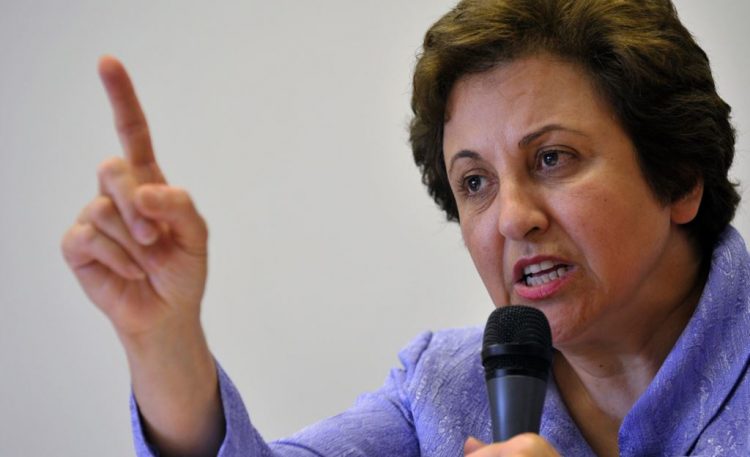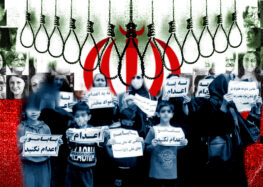Nobel Laureate Anticipates Crackdown in Iran as Judiciary Bans Human Rights Lawyers From Security Cases

Iranian human rights lawyer Shirin Ebadi was awarded the Nobel Peace Prize in 2003.
“Note to Article 48” Limits Detainees’ Counsel Choices to 20 State-Approved Lawyers
Nobel Peace Laureate Shirin Ebadi told the Center for Human Rights in Iran (CHRI) that the Iranian judiciary’s decision to restrict detainees held on politically motivated charges to picking counsel from a state-approved list is the “first step” in a coming crackdown on dissent.
“Given the political situation, the regime is preparing to crack down on opposition and street protests on a wider scale in the coming months and the implementation of the Note to Article 48 is the first step in denying suspects the ability to pick their own lawyer,” Ebadi, who worked for decades as a human rights lawyer in Iran, told CHRI on June 5, 2018.
According to state officials, more than 4,000 people were arrested during Iran’s December 2017/January 2018 protests after protests broke out across the country against various state policies.
Defendants held on politically motivated charges in Iran have repeatedly been denied due process but the judiciary’s list of 20 state-approved lawyers marks a new level of suppression of justice in Iran.
“For years, political suspects and prisoners of conscience faced charges from security agencies and were prosecuted in courts that are under the influence of the same agencies and now even their lawyers must be approved by these agencies,” Ebadi said.
“That means there is no way left to achieve justice,” added Ebadi, who was Iran’s first female judge before being forced to resign after the 1979 Islamic Revolution.
Iran’s Constitution sets no limits or conditions on the right to legal counsel and Article 35 states, “Both parties to a lawsuit have the right in all courts of law to select an attorney, and if they are unable to do so, arrangements must be made to provide them with legal counsel.”
According to Article 48 of Iran’s Criminal Procedures Regulations, people also have the right to ask for and have a meeting with a lawyer as soon as they are detained. However, the “Note to Article 48” makes exceptions: “In cases of crimes against internal or external security…during the investigation phase, the parties to the dispute are to select their attorneys from a list approved by the head of the judiciary.”
Iranian human rights lawyers including prominent human rights attorney Nasrin Sotoudeh have strongly criticized the Note to Article 48 and pointed out that the judiciary is not only using it in the investigation stage, but also when cases go to trial.
“The problem is that already some of the judges, including Judge [Abolqasem] Salavati, are invoking this note to reject lawyers chosen by suspects in political and security cases,” Ebadi told CHRI.
“Out of more than 60,000 lawyers throughout the country, unfortunately, the judiciary has selected only 20 people as its trusted lawyers for security cases, which violates the Constitution’s recognition of self defense as a fundamental right,” she said.
“From now on, those who are arrested will have absolutely no chance for justice,” she added.
In January 2018, shortly after the list was issued to judicial offices in Iran, 150 lawyers called on Judiciary Chief Sadegh Larijani to stop restricting detainees’ access to legal counsel.






